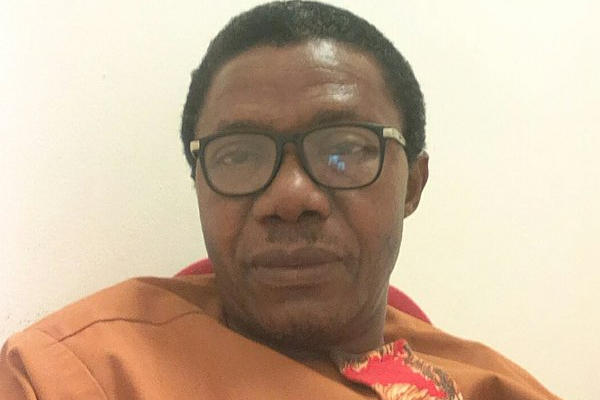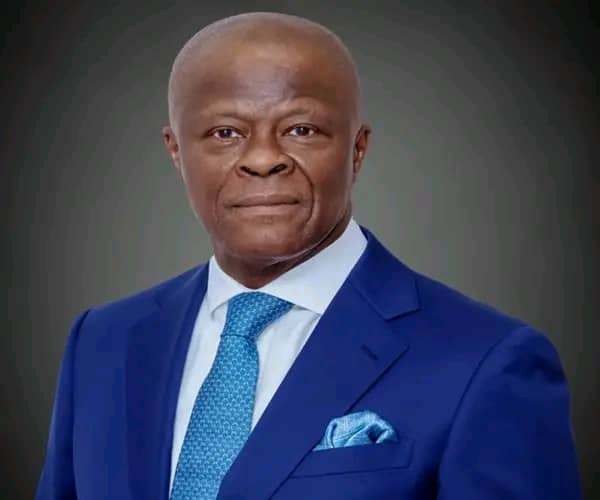Perhaps for the first time since the country’s return to democracy in 1999, the meeting of the South-East Governors’ Forum recorded full attendance of the 5 governors of the zone. In the past, governors would typically send their deputies and infrequently attended the zonal meetings in person probably because they believed the forum to be of little importance. The forum’s meetings were consequently infrequent.
The current crop of governors appears to view the forum as essential to effectively addressing security, regional development, and integration. This is a positive development that needs to be sustained moving forward.
Two years ago, everyone in Nigeria was envious of the South-East because it was the safest region. Ironically, the area is now the headquarters of the Unknown Gunmen (UGM), sit-at-home enforcers, agitators of all stripes, covert cults, and deep-state operations.
Security and development are directly related, thus they must be considered jointly. Terrorism and kidnapping have become lucrative industries for criminal elements, costing the South-East region trillions of naira and numerous needless deaths. The outcome has been disastrous: the South-East economy is collapsing. Asaba, Lagos, Ogun, and Abuja are welcoming an increase in enterprises and industries of fleeing Igbos. Ndigbo are now helping other regions’ economies while the South-East region’s economy is strangulated by its own hands and paralysed.
Lack of political leadership has played a major role in all of these, and the South-East governors, who serve as the chief security officers of the states and get security votes, ought to be the chief advocates for this cause.
A template for the Ebube Agu regional security was created when Dave Umahi was the South-East Governors’ Forum’s chairman, and it was modelled after the Amotekun security organisation of Southwest Nigeria. At a session in Owerri in April 2021, the Ebube Agu security outfit blueprint was approved by the South-East stakeholders (South-East governors, Ohanaeze Ndigbo, and key political leaders both elected and appointed, past and present). The chairman of the implementation committee was General Abel Obi Umahi (Ret.).
General Umahi realised after months of delay that the South-East governors were not ready to operate Ebube Agu as a regional security organisation. He gave this as his reason for resigning. Rather than establish the regional outfit, Governors Dave Umahi, and Hope Uzodinma set up their own—which even went by the name Ebube Agu—with which they pursued their actual and imagined political rivals and opponents. The noble vision of a regional security outfit was thus politicised and abandoned.
To address the South-East security crisis, the South-East governors, from what I understand, have formed yet another security committee. The Ebube Agu blueprint should be dusted up and adopted by this committee if it is not just another one set up for the show and to give the impression that something is being done. Nobody needs to reinvent the wheel. Ebube Agu can work if Amotekun is fairly working in the Southwest.
It is apparent who is to blame for the unrest in the South-East. They are the Simon Ekpa group, who believe in armed struggle and sit-at-home enforcement, using Nnamdi Kanu’s detention as an excuse; criminal elements, who use the sit-at-home and Biafra agitation as a smokescreen to kidnap, kill, maim, and destroy; cult groups, who are all over the state as a growing fad; and state actors, who run what you might call Deep State activities while disguising.
These five categories must be dealt with, using both kinetic and non-kinetic methods. Today’s South-East insecurity is comparable to a tsetse fly perched on the scrotum; dispatching it demands discretion. For instance, some specific schooling is needed to deal with the ongoing Yahoo ritual murders; it will be necessary in addition to guns and bloodletting.
Special synergy is also necessary for the development of the South-East and its regional integration. Fortunately, President Bola Tinubu just approved a bill that has removed energy from the exclusive list. The new law gives states, local government units (LGs), and even individuals the authority to generate electricity at any level, transmit, and distribute it in any way they see fit. Electricity was on the exclusive list under the previous law, which made this illegal.
The governors of the South-East states must collaborate to provide electricity to the entire region. They need to go for concessions for Oji Power station and the huge coal deposits in Enugu among others. Electricity is a big issue deterring investment from the region in addition to instability and insecurity. Indeed, if the South-East can overcome the problem of power, possibly up to 50% of the zone’s development needs would have been met. Electricity and security are important enablers of economic development.
Just before leaving office, Buhari signed legislation that moved the railway from the exclusive list to the concurrent list. Ring Superhighway and ring railway connecting the 5 South-East states should be ambitiously pursued as part of the South-East development master plan and master image. These will bring affordable and high mobility to the South-East economy. Both can be constructed using the BOT funding strategy.
The Eastern Region Masterplan created between the great Zik (Nigeria’s first president) and MI Okpara (Premier of the Eastern Region) needs to also be dusted up and adjusted at a macro level that will enable economies of scale to develop the South-East and economically and inclusively integrate the region.
Additionally, any development plan for the South-East that ignores the region’s direct connection to the sea will fall short of the desired levels of growth and development if the South-East would become to Nigeria what Silicon Valley is to the United States. Businessmen from the South East, both inside and outside the zone, import almost 50% of the country’s goods. The presence of one or two ports in the South-East will undoubtedly encourage Igbo importers to use the Eastern ports.
Through the Orashi River, a tributary of the Atlantic Ocean where an attempt was made to establish a port and abandoned in 1959, the Oseakwa inland port in Ihiala Anambra South, and Azumini Blue River, South-East offer two direct connections to the sea. It’s time to reopen that port. The Azumini Blue River in the state of Abia provides second access. The South-East can be served by canalising and dredging both rivers, which are around 20 nautical miles from the Atlantic Ocean. Both rivers are far closer to the ocean than the artificial Suez Canal, which is up to 200 nautical miles away, and Lagos ports.
Nonetheless, ports are on the exclusive list, which makes it the huge elephant in the room. However, it is entirely feasible to get the federal government to make concessions for the development of the two ports provided the necessary politics is played. Finding development partners to establish the two ports on a BOT basis is possible due to their inherent viability.
The world should also be accessible from the South-East via the air. Fortunately, Willie Obiano built a cargo international airport as a part of his legacy projects before stepping down as Anambra state governor. There is a need to secure the necessary license for international cargo flights to land there and for the location to become a key export and import hub. Speedy completion and activation of the Anambra Cargo International Airport is now a matter of great importance and a cornerstone for the regional development initiative.
Ta bu gboo; Osita di nma o diba gboo (It is not too late if we start today), as Ndigbo would say.
· Dr. Law Mefor, an Abuja-based forensic and social psychologist, is a fellow of The Abuja School of Social and Political Thoughts; [email protected]; Twitter: @DrlawsonMefor.





